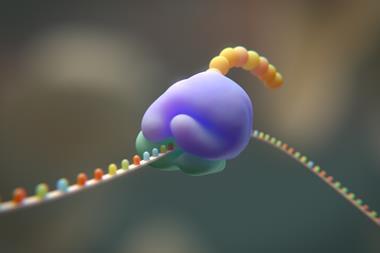A new book suggests chemistry is over 90% ‘complete’ – and that could be a good thing
Chemistry has painted itself into a corner. Or, rather, it’s sketched a ‘beautiful painting’ and ‘we’re touching up the corners’ when it comes to our understanding. So argues Bernie Bulkin in his new book Solving chemistry, which posits that all the major problems in chemistry have been solved and there are no great discoveries left. Anything really interesting sits at the interfaces with biology and physics.
On initial glance, it’s an idea that’s easy to scoff at. The scientists of the 19th century thought they’d hit the end of chemistry, too, only to uncork the genie of nuclear chemistry and develop equipment they hadn’t even considered. And sheer volume of problems chemists still struggle with – batteries, C–H bond cleavage, organic synthesis yields – proves there’s still stuff to do.
But Bulkin’s argument is more nuanced than ‘go home, chemists, you’re done’. At no point does he suggest chemistry is finished: merely that (with the exception of catalysis) we have a pretty clear idea of what’s going on. ‘Every chemical reaction we do is another example of one we’ve already done,’ Bulkin argued on BBC Radio Four. That doesn’t mean we shouldn’t be doing them. On the contrary, Bulkin wholeheartedly advocates the idea of chemistry as an essential foundation for education. Instead, he’s talking more about the evolution of a subject.
Mathematics is a great example of a subject that’s already transcended to Bulkin’s complete painting. We know a great deal about mathematics and we can use that knowledge to build, expand and extrapolate. In turn, this knowledge has helped underpin other disciplines. And we still have mathematicians to apply those foundations to real world problems.
Wouldn’t it be wonderful if chemistry achieved the same ubiquity? Rather than hoarding atoms, bonds and structures as ‘ours’, imagine a world where everyone views reactions as self-evident as multiplication or division. Chemistry, the central science, would still require its specialists – and would still need experts to apply its rules – but could quietly and effectively serve as the link that binds knowledge together. Who cares if great discoveries are in physics or biology; you need chemistry to get there.
Rather than be threatened by Bulkin’s pronouncement, chemists should relish it. If we have indeed solved the basics of our science, then it’s time to help our colleagues with theirs.












1 Reader's comment